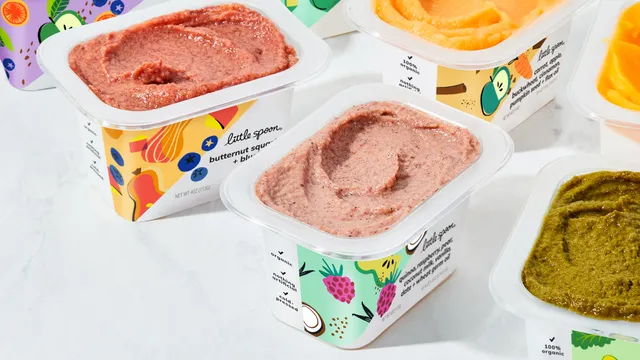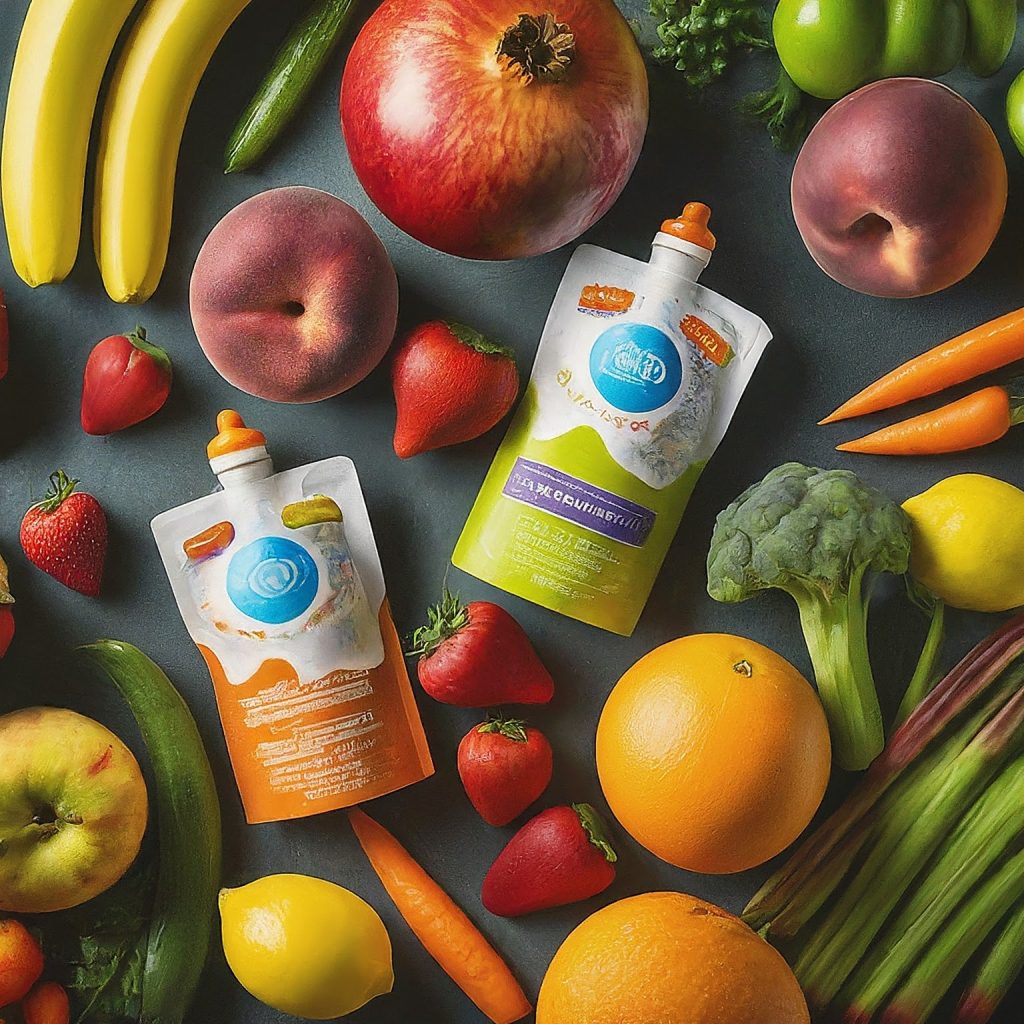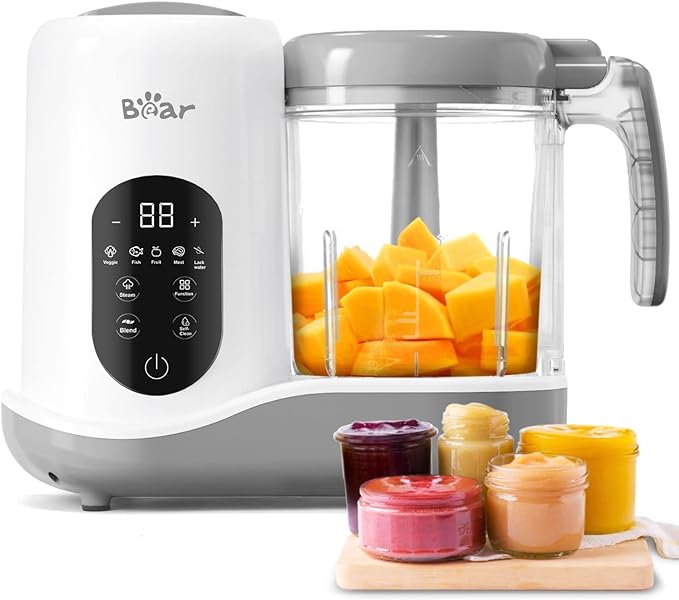Optimizing Your Baby’s Nutrition with Little Spoon Baby Food
Discover the best little spoon baby food options to ensure your little one gets optimal nutrition. Learn about the benefits, flavors, and tips for introducing solid foods.
Introduction
Welcome to the world of nutritious and delicious little spoon baby food! As a parent, you want the best for your little one, especially when it comes to their nutrition. With a variety of flavors and options available, choosing the right baby food can be both exciting and overwhelming. In this comprehensive guide, we’ll explore everything you need to know about little spoon baby food, from its benefits to tips for introducing it to your baby’s diet.
Benefits of Little Spoon Baby Food
Little spoon baby food offers a multitude of benefits for your little one’s development and health. Here are some key advantages:
Developmental Milestones
Little spoon baby food is specially formulated to support your baby’s growth and developmental milestones. With essential nutrients and vitamins, it aids in healthy brain development, strong bones, and overall growth.
Nutritional Variety
One of the advantages of little spoon baby food is the wide range of flavors and ingredients available. From fruits and vegetables to grains and proteins, you can introduce your baby to a diverse array of nutritious foods, helping them develop a well-rounded palate.
Convenience
Little spoon baby food provides busy parents with a convenient feeding option. Whether you’re at home or on the go, the convenient packaging and easy-to-use spoons make feeding time a breeze.
Exploring Little Spoon Baby Food Flavors
Introducing your baby to new flavors is an exciting journey! Little spoon offers a variety of delicious flavors that cater to different taste preferences and developmental stages:
Fruit Medley
The fruit medley blends a delightful mix of fresh fruits such as apples, bananas, and strawberries. Packed with vitamins and natural sweetness, it’s a favorite among little ones exploring new tastes.
Veggie Delight
The veggie delight introduces your baby to the goodness of vegetables like carrots, peas, and sweet potatoes. Rich in essential nutrients and fiber, it promotes healthy digestion and supports immune function.
Tips for Introducing Little Spoon Baby Food
Introducing solid foods to your baby can be a memorable experience. Here are some tips to make the transition smooth and enjoyable:
Start Slowly
Begin with small spoonfuls of little spoon baby food to gauge your baby’s reaction. Start with single-ingredient purees before exploring combination blends.
Follow Your Baby’s Cues
Pay attention to your baby’s cues during feeding time. Look for signs of interest, such as opening their mouth or leaning forward. Let your baby explore different textures and flavors at their own pace.
Be Patient
Every baby is unique, and it may take time for them to adjust to new tastes and textures. Be patient and encouraging during the feeding process, and celebrate small milestones along the way.
Little Spoon Baby Food FAQs
How do I store Little Spoon baby food? Little Spoon baby food can be stored in the refrigerator for up to 24 hours after opening. Make sure to seal the container tightly to maintain freshness.
Can I mix Little Spoon baby food with breast milk or formula? Yes, you can mix little spoon baby food with breast milk or formula to create a smoother consistency for younger babies who are just starting solids.
Are Little Spoon baby food pouches recyclable? Yes, Little Spoon baby food pouches are recyclable. Check with your local recycling program for guidelines on recycling plastic pouches.
Is Little Spoon baby food organic? Yes, Little Spoon baby food is made with organic ingredients to ensure the highest quality and nutritional value for your baby.
Can I travel with Little Spoon baby food pouches? Absolutely! Little Spoon baby food pouches are convenient for travel and outings. Simply toss them in your diaper bag for a nutritious snack on the go.
Are there any allergens in Little Spoon baby food? Little Spoon baby food is carefully crafted to minimize allergens. However, it’s always important to check the ingredients list for potential allergens before feeding your baby.
Conclusion
In conclusion, little spoon baby food offers a convenient and nutritious option for introducing solids to your little one’s diet. With a variety of flavors, organic ingredients, and convenient packaging, it’s a trusted choice for parents seeking the best for their babies. Remember to follow your baby’s cues, experiment with different flavors, and celebrate each milestone along the way. Here’s to happy and healthy feeding experiences with little spoon baby food!
Gerber Baby Food: Nourishing Your Little One
Discover the world of Gerber baby food, from its rich history to nutritional benefits. Learn how to choose the right options for your baby and explore delicious recipes. Find answers to common questions about Gerber baby food.
Introduction
Welcome to the wholesome world of Gerber baby food! In this article, we delve into the nutritious offerings that have nourished generations of infants around the globe.
History of Gerber Baby Food
Let’s journey back to the origins of Gerber baby food and explore its fascinating evolution over time.
Nutritional Value of Gerber Baby Food
Explore the essential nutrients packed into every spoonful of Gerber baby food, promoting healthy development and growth.
Types of Gerber Baby Food
Dive into the variety of purees, snacks, cereals, and porridges offered by Gerber, tailored to meet the needs of growing infants.
Benefits of Gerber Baby Food
Discover the numerous benefits of incorporating Gerber baby food into your little one’s diet, fostering healthy habits and simplifying mealtime.
How to Choose the Right Gerber Baby Food
Gain valuable insights into selecting the perfect Gerber baby food options, considering factors such as age-appropriateness and ingredient safety.
Tips for Feeding Gerber Baby Food
Navigate the feeding journey with expert tips on introducing solids, portioning meals, and ensuring proper handling and storage of Gerber products.
Common Concerns About Gerber Baby Food
Address common questions and concerns regarding allergies, packaging safety, and product recalls associated with Gerber baby food.
Gerber Baby Food Recipes
Unleash your culinary creativity with homemade baby food ideas and tips for customizing Gerber purees to suit your baby’s palate.
Reviews and Testimonials
Explore firsthand experiences and recommendations from parents who have embraced Gerber baby food as a trusted companion in their parenting journey.
Frequently Asked Questions (FAQs)
What age can babies start eating Gerber Baby Food? Babies can typically start enjoying Gerber baby food around four to six months of age, when they show signs of readiness for solid foods.
Are Gerber Baby Foods organic? Yes, Gerber offers a range of organic baby food options made with high-quality, organic ingredients for discerning parents.
Can Gerber Baby Food be heated? Yes, Gerber baby food can be gently heated according to the instructions provided on the packaging for added convenience.
How long does Gerber Baby Food last? Unopened Gerber baby food can be safely stored for several months, while opened jars should be refrigerated and consumed within a few days.
Are there any recalls on Gerber Baby Food? Gerber maintains rigorous quality control standards, but in the rare event of a recall, consumers are promptly notified through official channels.
Can Gerber Baby Food be frozen? While not recommended, freezing Gerber baby food is feasible for short-term storage; however, texture and flavor may be altered upon thawing.
Conclusion
In conclusion, Gerber baby food stands as a beacon of nutrition and convenience for parents worldwide. Embrace the journey of nourishing your little one with the trusted goodness of Gerber.
7 Incredible Ways a Baby Food Maker Revolutionizes Mealtime
Discover how a baby food maker can transform mealtime for your little one. Explore 7 incredible ways to enhance nutrition and convenience with the latest baby food maker technology.
Introduction
Welcoming a new addition to your family is a joyous occasion filled with new experiences and responsibilities. As parents, we strive to provide the best nutrition for our babies, ensuring their healthy growth and development. In the realm of feeding, the baby food maker emerges as a revolutionary tool, simplifying meal preparation and offering a plethora of benefits. In this comprehensive guide, we delve into the world of baby food makers, exploring their functionalities, advantages, and how they can streamline your feeding routine.
Baby Food Maker: A Game-Changer in Infant Nutrition
Mealtime for infants is a crucial aspect of their early development. Here’s how a baby food maker transforms the feeding experience:
Simplified Meal Preparation
Gone are the days of spending hours in the kitchen preparing baby food manually. With a baby food maker, whipping up nutritious meals becomes a breeze. From steaming to blending, these devices streamline the entire process, allowing you to create wholesome dishes in minutes.
Enhanced Nutritional Value
Nutrition is paramount during infancy, laying the foundation for lifelong health. Baby food makers empower parents to control the ingredients in their child’s meals, ensuring they receive optimal nutrition without added preservatives or artificial flavors.
Cost-Effective Solution
Investing in a baby food maker proves economical in the long run. By preparing homemade baby food, parents can significantly reduce grocery expenses associated with pre-packaged products. Additionally, these devices offer versatility, accommodating various fruits, vegetables, and grains.
Introduces Variety to the Menu
Diverse flavors and textures play a vital role in expanding a baby’s palate. With a baby food maker, parents can experiment with a myriad of ingredients, introducing new tastes and textures as their little one progresses through different stages of development.
Promotes Eco-Friendly Practices
In today’s environmentally conscious world, reducing waste is a collective effort. Baby food makers contribute to sustainability by minimizing packaging waste associated with store-bought baby food jars and pouches. By preparing homemade meals, parents can embrace eco-friendly practices and reduce their carbon footprint.
Convenient Storage Options
Baby food makers often come with convenient storage containers, allowing parents to prepare meals in advance and store them for future use. This feature proves invaluable for busy parents, ensuring that nutritious meals are readily available whenever the need arises.
Encourages Bonding During Mealtime
Mealtime presents an excellent opportunity for bonding between parents and babies. With a baby food maker handling the meal preparation process, parents can focus on engaging with their little one, fostering positive associations with food and nurturing healthy eating habits from an early age.
FAQs About Baby Food Makers
How do I clean a baby food maker?
Cleaning a baby food maker is typically straightforward. Most models feature dishwasher-safe components, making cleanup a hassle-free task. Simply disassemble the device according to the manufacturer’s instructions and wash each part thoroughly with warm, soapy water or place them in the dishwasher for added convenience.
Can I use frozen fruits and vegetables in a baby food maker?
Yes, many baby food makers are equipped to handle frozen fruits and vegetables. Be sure to thaw them beforehand and follow the device’s guidelines for steaming and blending frozen ingredients. Using frozen produce can be a convenient option, especially when certain fruits and vegetables are out of season.
Is it safe to leave the baby food maker unattended?
While using a baby food maker, it’s essential to exercise caution and avoid leaving it unattended, especially during operation. Always follow the manufacturer’s safety guidelines and never leave the device running for extended periods without supervision.
Can I prepare large batches of baby food with a baby food maker?
Yes, most baby food makers allow you to prepare large batches of baby food, offering convenience for busy parents. Simply adjust the quantities of ingredients according to your preferences and storage capacity. Remember to store excess portions properly to maintain freshness and nutritional integrity.
Are baby food makers suitable for all stages of infant feeding?
Baby food makers are designed to accommodate various stages of infant feeding, from introducing purees during the early months to transitioning to more textured foods as your baby grows. Many models offer adjustable settings to cater to different consistency preferences, ensuring a seamless transition as your baby progresses through different developmental stages.
Can I use a baby food maker to prepare food for older children or adults?
While primarily designed for preparing baby food, some baby food makers offer versatility and can be used to create purees, soups, and sauces suitable for older children and adults with certain dietary preferences or restrictions. However, it’s essential to check the device’s capacity and functionalities to determine its suitability for your specific needs.
Order Now
Conclusion
In conclusion, a baby food maker emerges as a game-changer in the realm of infant nutrition, offering convenience, versatility, and peace of mind to parents navigating the exciting journey of parenthood. From simplifying meal preparation to promoting eco-friendly practices, these innovative devices revolutionize the way we feed our little ones. By harnessing the power of technology, parents can provide their babies with nutritious, homemade meals that lay the foundation for a lifetime of health and well-being.



